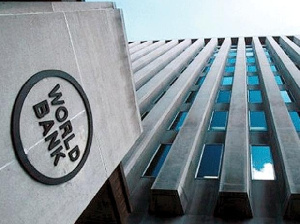Refinancing options for payment of maturing T-bills in October to face complications – Report

A report by Databank Research has projectedthat the government may face some complications in financing the repayment of Treasury bills that are set to mature on October 3, 2022.
The Weekly Fixed Income update by the research arm of the bank noted that this may be associated with the expected domestic debt restructuring.
According to myjoyonline.com reports, support from the Bank of Ghana may be sought in order to obtain more favourable refinancing options.
A total of GH¢905 million is expected to refinance the total maturities of the 91-day to 182-day treasury bills worth GH¢786.6 million.
“Last week, Fitch Ratings downgraded Ghana’s Issuer Default Rating from ‘CCC’ to ‘CC’. They cited possible debt restructuring, high debt service, and constrained financing as reasons for the recent downgrade. This is expected to complicate the refinancing options of the Treasury on the maturing paper on October 3, 2022, as pricing for a refinancing offer will likely be unfavorable,” parts of the report quoted by myjoyonline.com revealed on September 27, 2022.
The government is expected to offer ¢905 million across the 91-day to 182-day bills to refinance total maturities worth.
The report also projected that investors may maintain interest in short-term securities in the secondary market.
“We expect investors to focus on T-bills in the primary market. Investors may also be on the lookout for a bond offering to refinance the maturing paper on October 3, 2022. We expect investors to maintain interest in near-term maturities in the secondary market,” it added.
Treasury bills undersubscribed for the first time in almost 4 months
Treasury bills subscription for the past week was undersubscribed by almost 10 percent for the first time in almost 4 months.
The under subscription is a big deviation from the recent trajectory where T-bills have been over-subscribed.
Interests on T- bills have been on the upward trajectory in recent times with the 91-day T-Bill posting a 30% interest per anum, from 29.90% the previous week while the 182-day bill moved from above 31% to 31.34%.
However, out of a target of ¢1.33 billion cedis government secured ¢1.19 billion from the sale of the short-term securities.
Meanwhile, Ghana’s creditworthiness status has been further downgraded to junk status from CCC to CC by Fitch on September 23, 2022.
Even though the sale of the Treasury bills took place on the same day as the downgrade, it cannot be firmly established that the downgrade was the reason for the under-subscription.
But whether or not the downgrade can have further repercussions on government securities and/or bonds, is a possibility worth exploring.
Fitch’s downgrade meant that the likelihood of the government defaulting on its loans is high, a situation that sends a bad signal to the investor community.
CLICK HERE TO DOWNLOAD PRESS RADIO MOBILE APP
Government must as a matter of urgency finalize negotiations with the International Monetary Fund to restore investor confidence in the economy.
Source: www.ghanaweb.com







